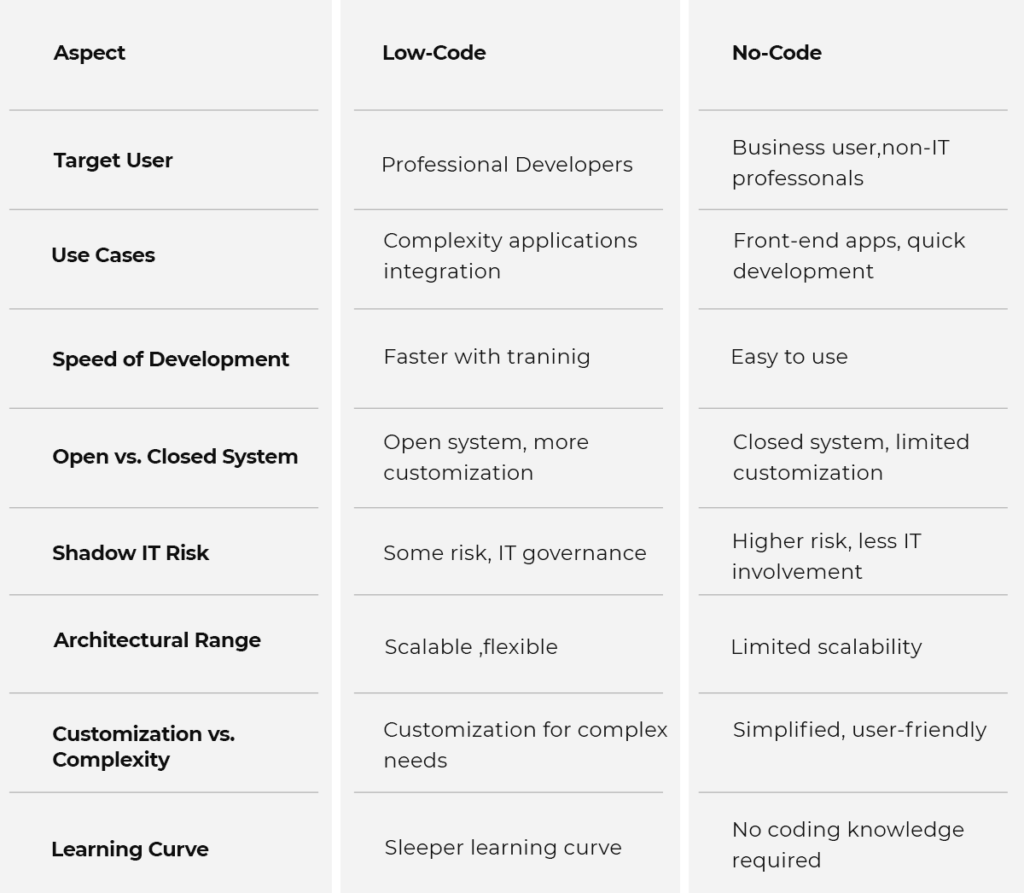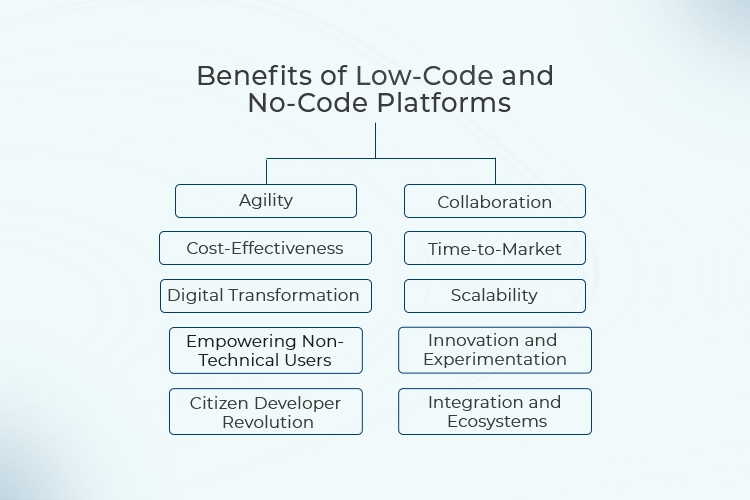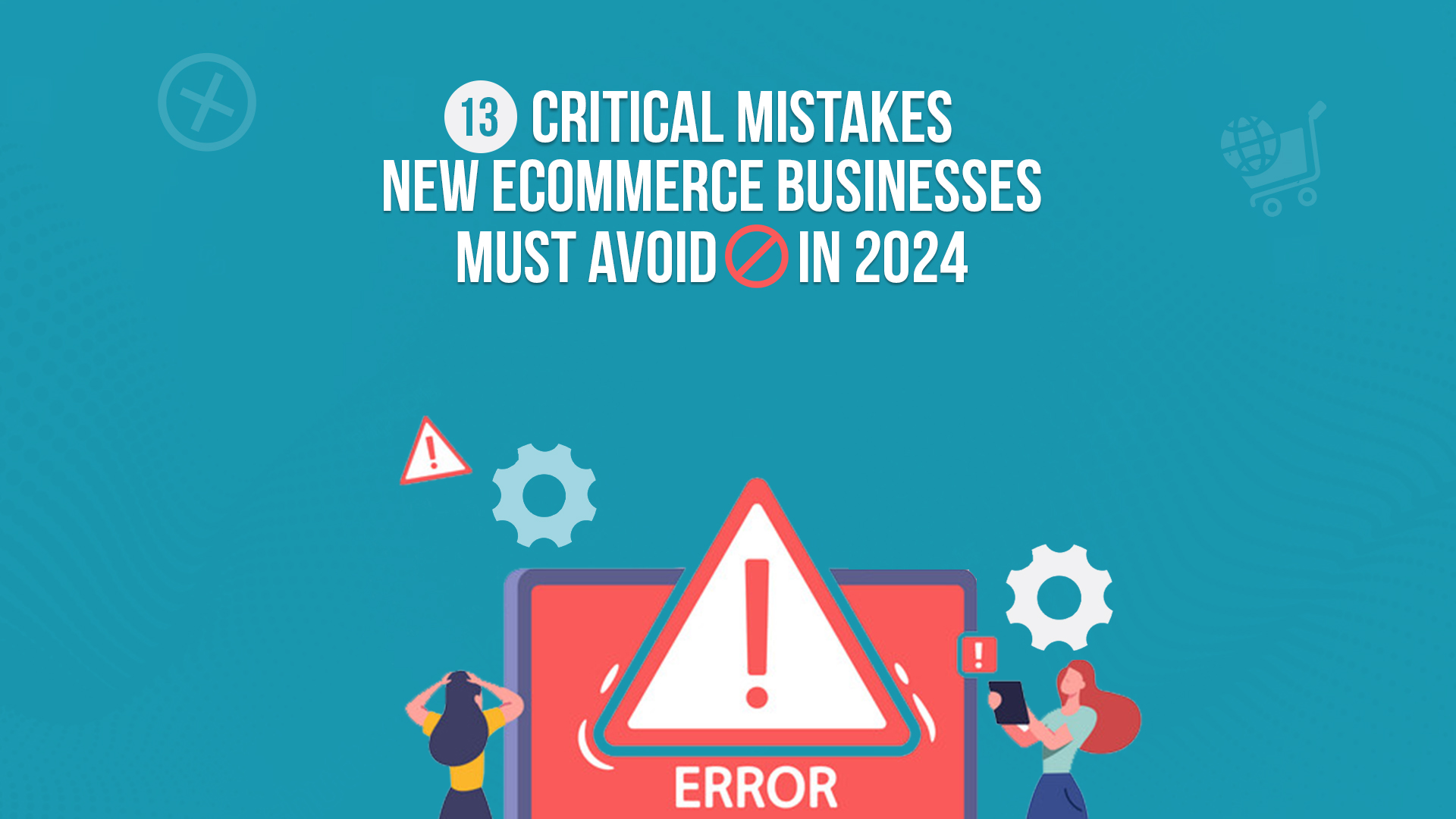Technology is continuously evolving and we are witnessing remarkable growth in software development with the advent of low-code and no-code platforms. These innovative tools are changing the way applications are built and enable people without advanced coding skills to develop and launch software solutions. In this comprehensive blog, we will explore the concepts of low-code and no-code, their working mechanisms, and the diverse benefits they offer businesses and organizations. Additionally, we will examine the challenges these platforms face and the potential they hold in authorizing non-technical users to become proficient app creators.
Understanding Low-Code and No-Code Platforms :
Low-Code Platforms
Low-code platforms provide a visual development environment with pre-built components and drag-and-drop functionality. These platforms are primarily designed for developers and professionals with some coding experience, aiming to accelerate application development. While low-code platforms significantly reduce the amount of manual coding required, they still offer the flexibility to write custom code when needed. This makes them a valuable tool for streamlining the development process while allowing for more advanced customization when required.
No-Code Platforms
No-code platforms are specifically geared towards non-technical users, empowering them to build applications without any coding knowledge. These platforms rely heavily on visual interfaces and templates to simplify the development process. Users can create solutions through a series of simple, logical steps, making them accessible to a wide range of individuals, including business users, marketers, and other professionals who may not have a background in programming. No-code platforms prioritize ease of use and simplicity to enable users to build applications quickly and efficiently.
How These Platforms Work
Application creation used to involve extensive coding previously, which often required skilled developers and considerable time and resources. Low-code and no-code platforms, however, have transformed this process by providing a user-friendly environment where individuals can create applications through visual building blocks and predefined templates.
When using a low-code platform, users can utilize the power of visual interfaces, drag-and-drop elements, and logic to design the application’s layout and functionality. Some customization may require writing a few lines of code, but the primary goal is to reduce coding complexity and speed up development.
However, no-code platforms simplify things even more. These platforms enable even non-technical users (citizen developers) to build fully functional applications using only visual tools and predefined components. Without the need for coding expertise, no-code platforms empower individuals from various backgrounds to actively participate in the app creation process.
Low-code vs. no-code development platforms: What are the differences?

It’s important to understand the differences between low-code and no-code development platforms. Although both approaches simplify software creation, they cater to different types of users and project requirements. Low-code platforms are designed for developers who want more efficiency and flexibility, and they come with a unique set of tools. On the other hand, no-code platforms are tailored for non-technical users and offer a completely different way of creating applications. To navigate the world of software creation successfully, it’s essential to know the differences between these two approaches and choose the one that aligns best with your development objectives. Let’s explore these differences and gain clarity on how low-code and no-code platforms are different and when to choose one over the other.
Navigating the coding landscape: Which path suits your needs?
Target Users
Low-code platforms aim at professional developers who want to simplify basic coding tasks and promote innovation by automating repetitive aspects of development. They empower developers to upskill and broaden their talent pool.
No-Code platforms target business users with domain knowledge but limited coding skills. These tools are ideal for teams that consist of both business users and developers, as well as non-IT professionals like those in HR, finance, and legal departments.
Use Cases
Low code is ideal for complex applications with extensive business logic and enterprise-level scalability. It excels at integrating with other apps and external APIs while supporting multiple data sources with advanced security features.
No-Code is well-suited for quickly designing front-end apps using intuitive drag-and-drop interfaces. It is useful for replacing ordinary administrative tasks, creating internal apps, and developing small-scale business applications with limited budgets.
Speed of Development
Low-Code requires more training and onboarding time due to its higher customizability, but it is still faster than traditional development approaches.
No-Code allows for faster development because it is easy to configure and use. It reduces the time needed for testing because there are fewer chances of making coding mistakes.
Open vs. Closed Systems
Low-Code is an open system that enables users to enhance functionality using code, which offers greater flexibility and reusability. However, manual code integration may require thorough testing with newer upgrades.
The No-Code system is relatively closed off and offers only a limited range of features that can be extended through predefined templates. Ensuring backward compatibility is easier with no manual code that could break future versions.
Shadow IT Risk
Using low-code and no-code platforms can lead to shadow IT, especially with no-code platforms that have less involvement from IT teams. It can increase the risk of security breaches and technical debt.
Low code mitigates shadow IT risk to some extent as it remains under the governance and control of IT teams.
Architectural Range
Using Low-Code technology allows for improved scalability and cross-platform compatibility. By incorporating custom plugins and code, it is possible to achieve extensive implementations and seamless integration with various platforms.
The No-Code approach has some limitations in terms of its ability to integrate with legacy systems or other platforms, which can ultimately limit its extensibility and potential. Suitable for a narrower set of use cases with less scalability.
Customization vs. Complexity
Low-Code provides more flexibility and customization options, making it suitable for professional developers handling complex functionalities and specific business needs.
No-Code prioritizes simplicity and ease of use, targeting non-technical users with limited customization options, more suited for standardized applications and workflows.
Learning Curve
Low-Code may have a steeper learning curve, requiring some technical background and coding knowledge.
No-Code is user-friendly and accessible to anyone, regardless of technical expertise, enabling quick application building.
Benefits of Low-Code and No-Code Platforms

Agility: Low-code and no-code platforms help businesses respond fast to changes in their needs and the market, staying competitive and flexible.
Cost-Effectiveness: These platforms save money by reducing the need for specialized developers and speeding up the app development process.
Empowering Non-Technical Users: No-code platforms authorize people from different departments to create apps and automate processes, making them more efficient and productive.
Digital Transformation: They play a crucial role in helping organizations embrace digital transformation, using technology to improve innovation and customer experiences.
Citizen Developer Revolution: Low-code and no-code platforms create a new group of citizen developers who can drive innovation without traditional coding skills.
Collaboration: With simple interfaces, these platforms encourage teamwork between technical and non-technical team members, making development smoother.
Time-to-Market: By speeding up development, these platforms reduce the time it takes to bring apps to the market, allowing businesses to seize opportunities quickly.
Scalability: Apps built on these platforms can grow and adapt as the organization’s needs change gradually.
Innovation and Experimentation: These platforms promote creativity and experimentation, allowing quick testing of new ideas without extensive development resources.
Integration and Ecosystems: Low-code and no-code platforms come with pre-built connections to popular services and APIs, making it easy to link with external systems and expand app capabilities.
Challenges and Limitations
While low-code and no-code platforms offer numerous benefits, they do face some challenges and limitations:
Limited Customization: Some platforms may have limitations in customizing complex applications.
Security Concerns: Hosting sensitive data outside your organization may raise security and compliance issues that need careful consideration.
Shadow IT Risks: No-code platforms, in particular, can lead to unmonitored parallel infrastructure and potential security vulnerabilities.
Integration Complexity: Integrating with existing legacy systems or external APIs may be challenging for certain platforms.
Understanding the terrain: The hurdles to overcome in low-code and no-code development.
Conclusion
The rise of low-code and no-code platforms has ushered in a new era of software development, democratizing the creation process and empowering non-technical individuals to become proficient app creators. These platforms offer unprecedented speed, efficiency, and cost-effectiveness, making them invaluable tools for businesses looking to accelerate their digital transformation. As they continue to evolve and address challenges, low-code, and no-code platforms have the potential to reshape the future of software development, creating a world where innovation knows no coding boundaries. Embracing these platforms can be a strategic decision for organizations seeking agility, scalability, and innovation in their application development processes.
A world where innovation knows no coding boundaries.










